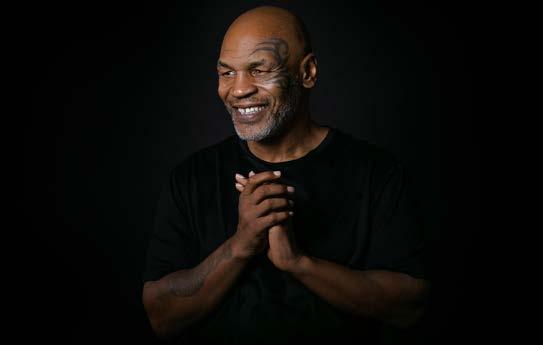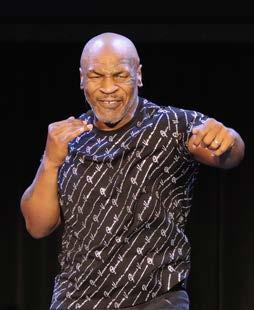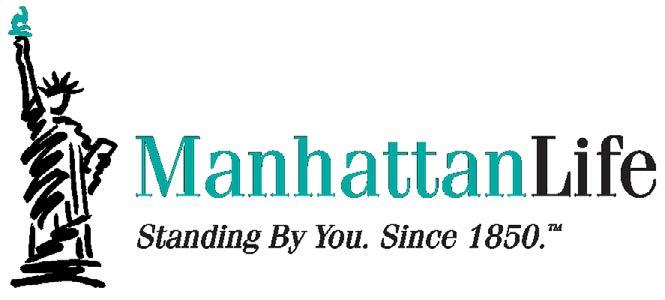
6 minute read
Lifestyle Entertainment
REINVENTED ROUND 2
Iron Mike Tyson is cultivating the fine art of acting in his oneman stage show.
Advertisement
By David Spatz
Mike Tyson
When word began leaking out that retired former world heavyweight boxing champ Mike Tyson was assembling a one-man autobiographical stage show, theatrical critics began licking their chops. Maybe they couldn’t cut him down to size during the years when his dominance in the squared circle went virtually unchallenged, but now he was stepping into unfamiliar territory — the lights and sounds and all the little nuances and intangibles of life in the entertainment world. Critics felt they’d have a field day using their words as knock-out punches in their reviews, shoving Tyson into the acting trash heap as quickly and efficiently as Tyson dropped former heavyweight champ Michael Spinks just 91 seconds into the first round of their title fight at what is now Jim Whelan Boardwalk Hall on June 27, 1988.
But when the final bell rang after his debut tour in an original show, written by his wife, Kiki, and titled “Undisputed Truth,” many critics had to grudgingly admit that Tyson didn’t embarrass himself. In fact, he did such a good job with the show that — with the help of a famous fanturned-friend named Spike Lee — Tyson is back on the road with an updated version of the show, “Undisputed Truth, Round 2.”
Despite his turbulent career in boxing and in life, especially during his early years, Tyson says it isn’t necessary for people to have seen the first edition of the show to understand the sequel.
“Not necessary,” says the former undisputed world heavyweight boxing champion, who recently brought his one-man show to Borgata’s Music Box. “It’s just a show, it’s entertainment. So even if you haven’t seen round one, round two is even better than round one. (The audience) is getting a better show without even seeing the first one.”
“Round one was very serious, intense, and it talks about a lot of really malevolent things,” he adds during a phone call from his Las Vegas home. “But it won’t happen in (round two), because this one is explosive fun, it’s riveting and it’s informative, more so than the first one was.”
The inspiration for “Undisputed Truth” came when Tyson and his wife caught actor Chazz Palminteri’s one-man play “A Bronx Tale,” in which the star plays 18 different roles. “It was so sensational and mesmerizing, and I remember explaining to my wife that I could do that, because I (talk to a lot of people) and it’s more like a Q & A,” he explains. “I felt like I was doing a theatrical piece like Mr. Palminteri.”
The path to Broadway for Tyson, 53, began in the mid-1980s when he went from amateur to professional boxer. Like so many fledgling boxers before him, he began by fighting a series of fourround matches on the undercards of bigger fights.
He already had four wins against no losses and was just 18-years-old when he made his Atlantic City Boardwalk debut at Resorts Casino Hotel. After his lightning-quick wins that rarely lasted the full four rounds, Tyson was mesmerizing fans, experts, boxing journalists, and anyone who knew anything about the sweet science.
He barely broke a sweat as he systematically fought his way up the undercards and then down the Boardwalk on his way to first becoming a heavyweight contender, and then ultimately its undisputed world champion.
Former Trump Plaza Hotel & Casino owner Donald Trump hitched his wagon to Tyson’s brute strength and drawing power. He paid the fighter and his opponents millions of dollars in purse money to duke it out in what is now known as Jim Whelan Boardwalk Hall, but was just plain Convention Hall in those days. Trump liked to brag about how much money Tyson’s fights brought to his casino’s bottom line, because the fights attracted the highest of rollers and busloads of A-list celebrities. But the reality is that while Trump was shelling out the millions for a Tyson fight, it was all of Atlantic City that actually benefitted from the global attention every Tyson fight received.
Although he considers himself a professional entertainer and his athletic career is in the past, he stills pays attention to boxing. Like many, he wonders what happened to the boxing division he once dominated. There are few heavyweights these days who can come close to creating the excitement in and out of the ring that Tyson and his colleagues were capable of doing a generation ago. Iron Mike has a ready answer for the lack of heavyweight luster.
“Everything changes,” he says of the lack of

star power in the heavyweight ranks. During Tyson’s glory years, the ring was loaded with charismatic heavyweights like George Foreman, Lennox Lewis, Evander Holyfield and even a guy few people had heard of, Buster Douglas, who may not have been the most charismatic fighter but who was briefly the flavor of the month after he stunned the world by handing Tyson his first professional loss after 37 consecutive wins, the majority by knockout. “But now (boxing’s) different. Now we’ve got a 6’ 9” boxer who’s a great fighter,” he says, referring to undefeated heavyweight champion Tyson Fury, whose father named him in honor of Mike Tyson, who had just captured his championship boxing belt the year Fury was born.
While he claims to still be in good shape — and has also become such a big advocate for recreational marijuana that he owns his own commercial pot ranch in California — he has no desire to return to the athletic world. Nor does he feel like he’s lived two different lives — the first as a human battering ram who was a magnet for trouble, the other as an entertainer and compassionate philanthropist for kids’ causes.
“I look at my life as somewhat of a vessel to touch people and for them to touch other people,” he says. “I’m in the numbers game. There’s me and then there’s many, many others. So it’s not that I’m better than anybody. I’m just playing my part in the universe.” n

Mike Tyson on stage for his one man show at the Borgata last March Photo by Don Kravitz
Protection for your Family.
ManhattanLife proudly supports Forza Insurance’s policy holders during Covid-19 and into the future.

Expanded benefits protect against unexpected expenses.
ManhattanLife provides a broad range of voluntary benefits, from accident and critical illness to disability and life insurance. Coverage that helps employees fill the gaps created by high deductible and rising copays. This coverage is available through the Premier Series of worksite benefits and the Prestige Series of voluntary benefits (formerly the Workplace Voluntary Benefits and Financial Protection Plan product lines from Humana), and through Quick Case ® , designed for companies with 100 employees or less.
ACCIDENT Accident coverage from ManhattanLife is designed to complement existing medical coverage and help narrow gaps caused by out-of-pocket expenses.

CANCER
Cancer coverage provides employees with benefits that protect them from the copays, deductibles and other expenses that comes with fighting a cancer diagnosis.
CRITICAL ILLNESS
Critical Illness helps employees and their families cover expenses associated with a number of issues, including heart attacks, strokes, and major organ transplants.









